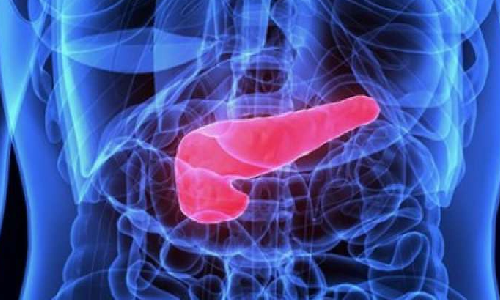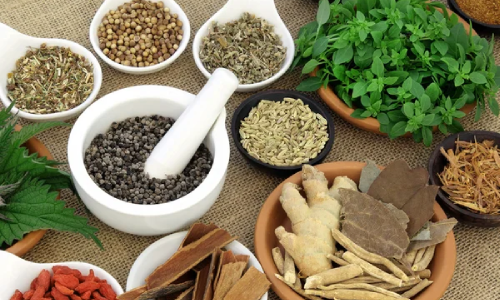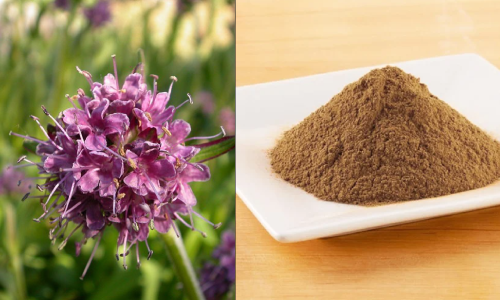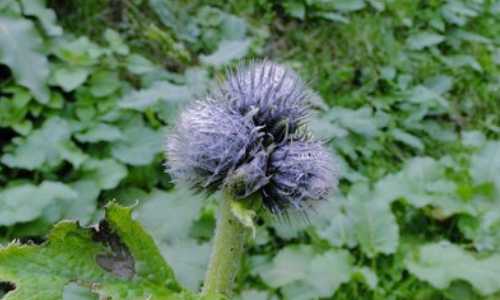The pancreas is called a mixed gland due to its dual role as a digestive organ and an endocrine organ. Located in the abdomen, this incredible organ has two main responsibilities. It produces enzymes that aid digestion and also, insulin, the hormone that controls your sugar levels. That’s why the health of your pancreas is important. In Ayurveda, the pancreas is called Agnashaya/Grahani or the seat of Agni (digestive fire). Therefore, it is important to keep your Agni balanced for a healthy pancreas. And this can be achieved through the right diet, herbs and lifestyle practices. In this blog, let us delve into some of the Ayurvedic tips that can help keep your pancreas healthy. Know the Pancreas Out of the three Doshas (biophysical energies), Pitta Dosha that is responsible for digestion and metabolic functions of the body, is mainly associated with the pancreas. An imbalance of Agni or Doshas can affect the health of your pancreas and in turn, your overall health. Ayurvedic Diet for Pancreas Health Ayurveda not only considers food as a source of energy but also as medicine. As an Ayurvedic doctor, I follow this principle in my treatment. 80% of my treatment primarily involves dietary corrections and only the remaining 20% involves medicines. The right diet can have a profound impact on your overall health. And the same works for maintaining the health of the pancreas. To keep your pancreas healthy, have Pitta-balancing and Agni-boosting foods in your diet. Fresh fruits and vegetables Have lots of seasonal vegetables and fruits. Leafy greens, bitter gourd and cucumbers are all great for balancing Pitta Dosha and the health of your pancreas. Whole Grains Have barley, quinoa and amaranth. These whole grains are soft, do not increase your blood sugar levels and are light to digest. Healthy Fats Include healthy fats, like ghee in your diet. Ghee is one of Ayurveda’s favourites, thanks to its health benefits. It aids digestion and helps balance Pitta Dosha. Spices Add spices like turmeric, cumin and fennel in your cooking. They are all great for digestion; furthermore, they are anti-inflammatory in nature. These foods are all generally great for your pancreas health. But that does not mean they may be suitable for you. What’s most important is to know if they align with your Prakriti (body type), Dosha imbalances and health conditions. And the best way to know that is to consult a qualified Ayurvedic doctor. Herbs for the Health of the Pancreas In Ayurveda, dietary and lifestyle corrections are the most important factors when it comes to maintaining good health. The next factor is Ayurvedic herbs. The Samhitas or Ayurvedic texts mention of countless herbs that help treat various health conditions and are good for your overall health. There are even many on the list that help nourish the pancreas and maintain its functions by boosting your Agni, reducing inflammation and keeping your blood sugar levels in check. Turmeric Turmeric is known to have amazing medicinal properties. Its anti-inflammatory nature is, therefore, great for reducing inflammation and, insulin resistance. Guduchi Guduchi is another amazing Ayurvedic herb with many medicinal benefits. It balanced the Tridoshas, which is important to keep your pancreas healthy. Bitter Melon The anti-inflammatory properties of bitter melon or bitter gourd help lower your blood sugar levels and thereby, help manage your pancreatic health. Amla Packed with antioxidants, Amla or Indian gooseberry has beneficial effects on your pancreas and the liver. Triphala Triphala – the Ayurvedic formulation made of three fruits, Amlaki, Haritaki and Bibhitaki is great for digestion and detoxification. I, however, do not recommend Triphala for internal use on a regular basis. Triphala is a medicine. If at all you choose to take it internally, it has to be taken with the right vehicle, in the right season in the right quantity under a doctor’s supervision. Watch this video for more insight into Triphala: Ayurvedic Lifestyle for Pancreas Health A balanced lifestyle is another factor that helps keep your pancreas healthy. Ayurveda insists on following Dinacharya or daily routine and Ritucharya or seasonal routine. It brings about a discipline in life which can have a positive impact on your pancreatic health as well as your mental health. Want to learn more about Dinacharya? Then download my ebook here (it’s absolutely free)! Stress is often related to mental health. But the truth is it can mess up your physical health too. The following lifestyle practices help manage your stress levels, while also boosting the efficiency of the different functions of the body. Yoga and Pranayama Doing Yoga and Pranayama helps lower your stress, while also improving circulation and stimulating your digestive tract – all of which are much needed for your pancreas. Paschimottanasana, Ardha Matsyendrasana and Dhanurasana are some of the Yoga poses that help stimulate your pancreas. These poses are also great for the functioning of your digestive system. Also, breathing exercises like Kapalbhati and Anulom Vilom help reduce your stress levels and boost the functioning of your pancreas. Meditation Meditation is another great way to lower your stress and keep a calm mind. Meditate for 5 to 10 minutes on a daily basis and see the difference it can bring about on your overall health. Mindfulness Be mindful of everything you do. It helps you stay aware of your actions; furthermore, it allows you to have better control of your life. Adequate Sleep Ayurveda has three pillars of health and sleep is one of them. Having quality sleep is crucial for your overall health and to manage your blood sugar levels. Our… Continue reading Pancreas’ Health Tips in Ayurveda
Pancreas’ Health Tips in Ayurveda









